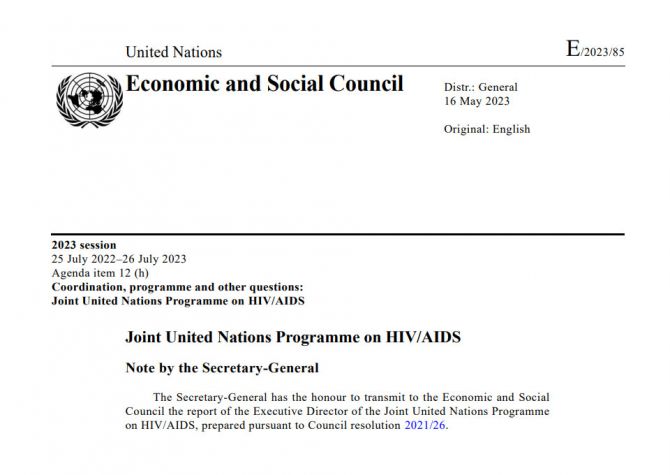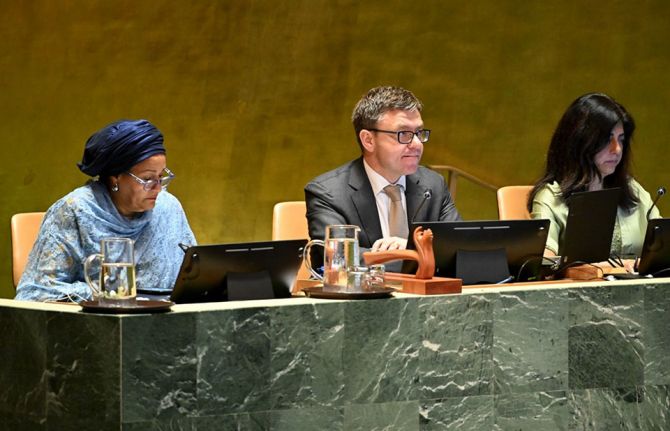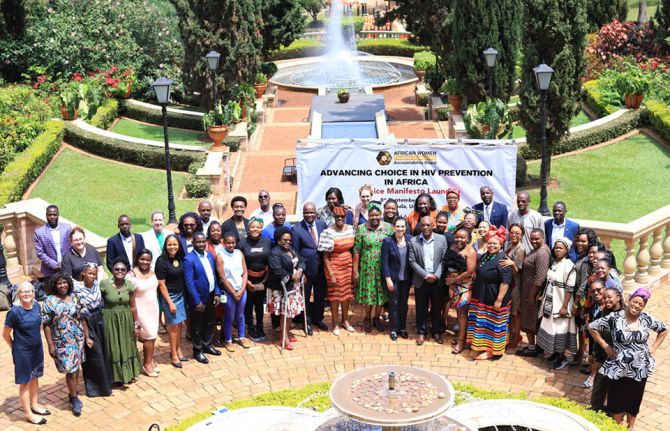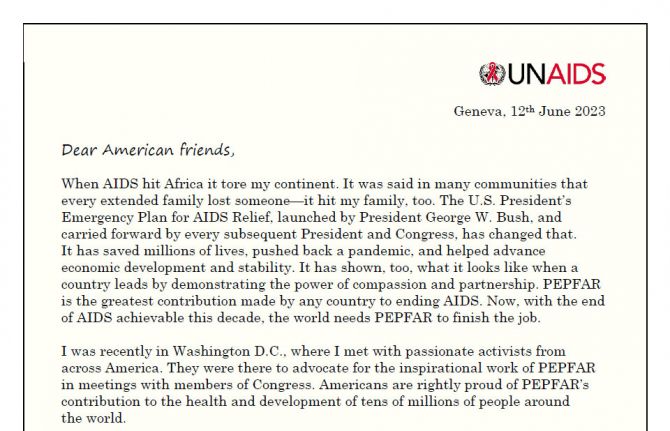

Feature Story
ECOSOC adopts its 2023 resolution on the Joint United Nations Programme on HIV/AIDS
03 August 2023
03 August 2023 03 August 2023On 25 July, the United Nations Economic and Social Council (ECOSOC) adopted its 2023 resolution on the Joint United Nations Programme on HIV/AIDS by consensus, at a meeting presided over by the Vice-President of ECOSOC, Ambassador Paula Narváez, Permanent Representative of Chile to the United Nations in New York.
At the meeting, the Council considered the 2023 report of the UNAIDS Executive Director, which was introduced by UNAIDS Deputy Executive Director for Programmes, Ms Angeli Achrekar.
Following the debate, Germany, presented a joint statement by Germany and Kenya introducing the 2023 Resolution on the Joint Programme. The two countries had co-facilitated the negotiations in Geneva, Switzerland, earlier in July in their capacity as, respectively, the Chair and Vice-Chair of the UNAIDS Programme Coordinating Board.
They emphasized their gratitude to Member States for having ensured a consensus resolution that stresses the need to act with urgency to meet the 2025 milestones and targets, as a prerequisite for ending the AIDS epidemic by 2030. The Resolution also notes the importance of the 2021 Political Declaration on HIV and AIDS as well as the Global AIDS Strategy 2021-2026.Other members taking the floor, including Australia, Brazil, the Islamic Republic of Iran, Mexico, South Africa, and the United States of America also commended the co-facilitators for the consultative process.
Germany and Kenya cautioned that despite continued global progress many countries are off track. They expressed concern about the persistent funding shortfalls experienced by the Joint Programme and its negative impact on the capacity to implement its annual workplan and called for renewed efforts to fully fund the core Unified Budget, Results and Accountability Framework, calling upon existing donors to maintain and step up their contributions, and inviting new donors to join from both the public and private sectors.
The resolution maintains its call for reinvigorated efforts to protect human rights and promote gender equality in the context of HIV, expressing concern over laws, policies, and practices that hinder access for all people to HIV prevention, treatment, care, and support service, and highlighted the attention needed by key populations, recognizing that efforts to achieve universal health coverage should be informed by the lessons learned from the multisectoral HIV response, including community-based and community-led service delivery. Members speaking from the floor also reiterated the importance of these lessons in preparation for and response to future pandemics.
“The inclusive and multisectoral Joint Programme model established by ECOSOC –which brings together the expertise of several eleven United Nations organizations and is governed by an inclusive Board that includes people most affected by HIV as its members – remains more relevant than ever. The important role of civil society in the AIDS response is recognized in the resolution you will be adopting today”, said Ms Achrekar, addressing the representatives of permanent missions in New York.



